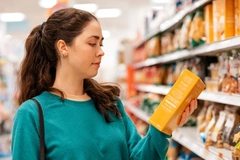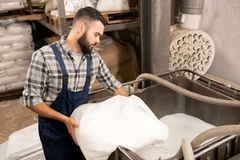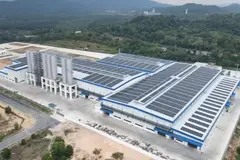HSBC funds recycled PET production expansion in Malaysia
Key takeaways
- FE Green PET secures RM150 million from HSBC Malaysia to expand its rPET resin production plant in Melaka, Malaysia.
- The plant will produce 50,000 metric tons of rPET annually from post-consumer plastic materials.
- The project aligns with Malaysia’s green transition, promoting sustainable practices and low-carbon development.
FE Green PET, a subsidiary of Taiwan’s Far Eastern New Century Group (FENC), has secured RM150 million (US$35.5 million) in green and sustainability-linked financing from HSBC Malaysia. The investment will fund the expansion of FE Green PET’s recycled PET (rPET) resin production plant in Malaysia.
Post-consumer plastic materials, including bottles and containers, can be used to produce rPET. A portion of the loan proceeds will be allocated to the acquisition of industrial land and rPET production equipment to support the plant’s construction phase.
The plant will have the capacity to produce 50,000 metric tons of rPET from PCR content annually. It will contribute to waste reduction by transforming waste into value-added products for food-grade rPET.
Donald Fan, president at FENC, says: “Malaysia is not only a key hub for our ASEAN operations but also represents our long-term commitment to local development. The commissioning of our new Melaka plant will accelerate the implementation of the ‘bottle-to-bottle’ circular system, supporting Malaysia’s green transition and resource recycling, while further connecting regional and global supply chains in pursuit of low-carbon development.”
Promoting circularity
FE Green PET offers technology that turns locally sourced PET bottles into rPET resin. The company shares that through sorting, cleaning, decontamination, and pelletizing, high-quality rPET resin is produced.
The initiative will support the construction phase and the post-commercial operation of the project.
Shreyas Krishna, head of global trade solutions, HSBC Malaysia, says: “The collaboration between FE Green PET and HSBC signifies a stride toward a more sustainable future, promoting a circular economy and responsible manufacturing practices.”
“Through the cross-border collaboration with the parent company, the deal highlights our ability to leverage our international network to connect clients with key opportunities offered by sustainable finance.”
This investment aligns with Melaka’s Industrial Booster initiative and will strengthen the Malaysian state’s vision of transforming into a green state economy hub, with infrastructure enabling fast global imports and exports.
Malaysia is advancing its circular economy as part of its strategy to combat plastic pollution. Earlier this year, the Federal Government introduced tightened regulations on packaging waste imports, requiring that all scrap plastic imports, regardless of their country of origin, receive approval from a government-owned certification body.











